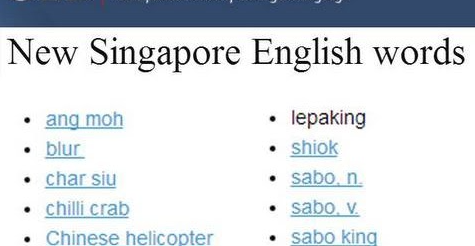As younger generations adopt global influences, questions arise about the evolution of Singapore’s beloved vernacular.
SINGAPORE: Is Singlish losing its prominence? A netizen recently raised this question, expressing concern that fewer Singaporeans, especially among the younger generation, are using the uniquely local vernacular.
Redditor u/what_the_foot shared on the r/askSingapore forum that compared to 10 or 20 years ago, Singlish appears less common. They specifically noted a decline in the “PCK type Singlish,” which is rich in Malay and Hokkien expressions, such as “eh I makan liao” or “wah this damn shiok la.”
The poster observed that younger Singaporeans still use English with a local accent, but it’s “not the type of Singlish that was familiar.” They also mentioned that even older generations, in their 30s to 50s, who grew up with Singlish, seem to be using it less frequently.
In an update, the Redditor added that simple Singlish elements like “lah,” “leh,” and “liao” are also becoming less common in casual speech.
The post sparked a lively discussion online, with some commenters suggesting that Singlish is not declining but evolving, as languages naturally do. However, a Gen Z commenter opined that Singlish might be in “slow decline” among younger people due to the increasing influence of Western slang, largely absorbed through platforms like TikTok.
Others noted a growing trend of mixing Mandarin and English, which some believe has overshadowed traditional Singlish expressions. Terms like “obiang,” “norchat,” and “tackle” were highlighted as examples of fading vocabulary.
The Independent Singapore reached out to Gwee Li Sui, author of the first book on Singlish written entirely in Singlish, for his perspective.
“Ha, got decline meh? Maybe if you mix with only peepur of your own kind – ie. same culture, same education level, same kind of job, same age group, same interests, etc. – then you can say what you wan lah, haha,” Gwee quipped in his trademark style.
When asked if younger Singaporeans are losing their Singlish, Gwee acknowledged that it’s “aiyah natural lah” due to their focus on school and social media. However, he suggested that as they grow older and interact more with older Singaporeans in settings like kopitiams, their Singlish may “kick in” naturally.
“Singlish won’t die one,” he assured, describing it as a “subconscious thinking language” that thrives in fostering continuity and harmony across generations and groups.








